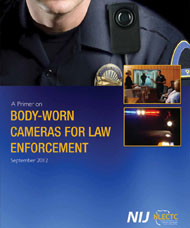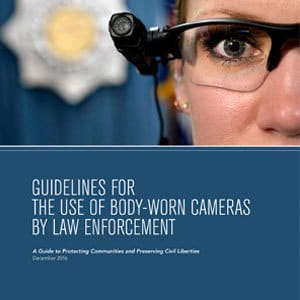MENU
JUMP TO
Proper training can be a determining factor in the success of an agency's body-worn camera (BWC) program. As with any new law enforcement initiative, the various roles within an agency (patrol officers, supervisor, internal affairs, information officers, etc.) may require unique content, approaches, and delivery methods. An often overlooked but critical factor in the implementation and sustainment of an effective BWC program is educating and training parties outside the law enforcement agency, such as information technology support, prosecutors, defense bar, judiciary, and other relevant stakeholders that may obtain access to the video recordings.
As part of a comprehensive training plan, an agency should consider educating the public and media on the technology, policies, and operational aspects of the proposed BWC program.
BWC Podcast Series
For more about these topics, please check out the BWC Podcast Series.
Subject Matter Experts Share
See the YouTube Terms of Service and Google Privacy Policy
Featured Resources
Training Curriculum
Data & Society Research Institute created a document on Police Body-Worn Cameras to discuss best practices for inclusion in training curriculum
NIJ BWC Primer
This resource answers basic questions about body-worn cameras and implementation issues.
Guidelines
In this report, The Constitution Project Committee on Policing Reforms describes a number of the most significant issues that law enforcement agencies and their communities may encounter when implementing body-worn camera programs.
BJA Expert Panel
Justice professionals representing law enforcement, courts, prosecution, public defense, labor organizations, and advocates for privacy, victims, and juveniles initiated Toolkit discussions






